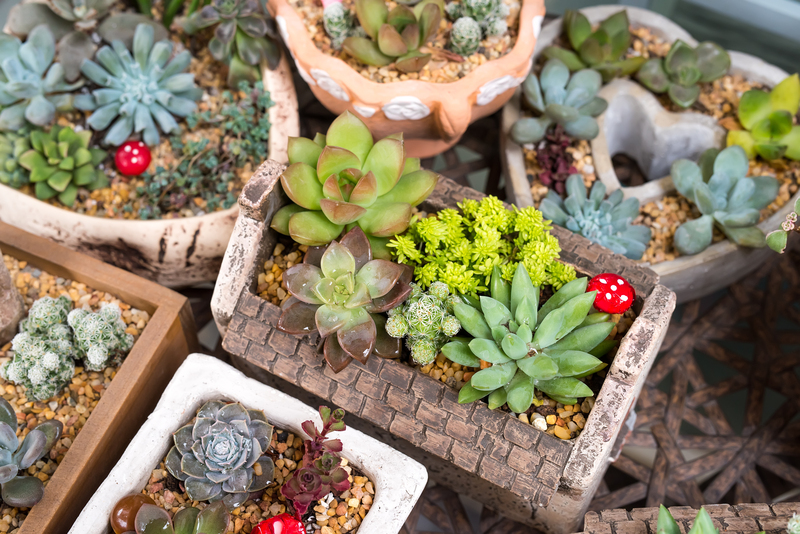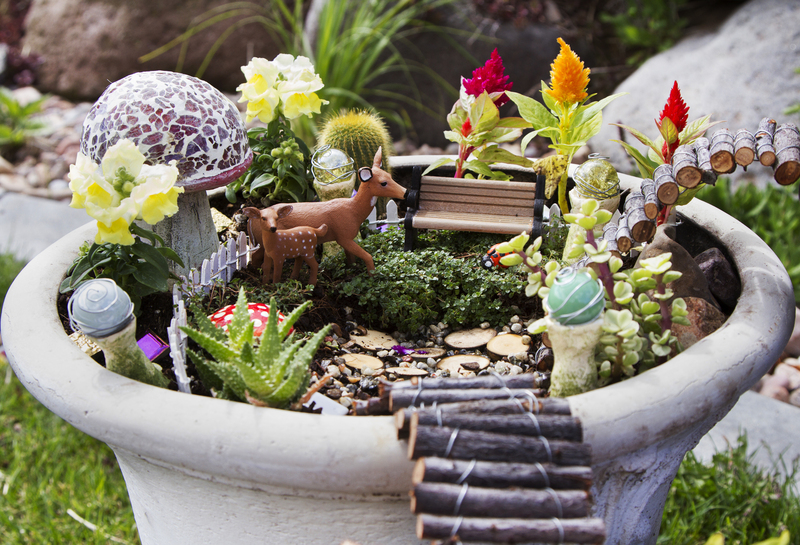Three Tips to Keep Your Garden Free of Weeds
Posted on 25/06/2025
Three Tips to Keep Your Garden Free of Weeds: The Ultimate Guide
Are you tired of battling stubborn weeds that seem to pop up faster than your cherished flowers and vegetables? Keeping your garden weed-free can feel like a constant battle, but with the right strategies and some expert gardening tips, you can maintain a lush, healthy, and weed-free garden oasis. In this comprehensive guide, we'll explore three essential tips to keep your garden clear of weeds. Say goodbye to unwanted intruders and welcome a thriving, beautiful garden all season long!
Understanding Why Weeds Invade Your Garden
Before diving into our top weed prevention tips, it's important to know why weeds are such a persistent problem. Weeds are opportunistic plants that thrive in disturbed soil, quickly claiming space and nutrients meant for your planted crops. Their seeds can lay dormant for years, and the tiniest fragment left in the soil can regrow with surprising tenacity. Understanding this resilience underscores the importance of adopting robust, sustained garden weed control strategies.

Tip #1: Use Effective Mulching Methods
Mulching is widely regarded as an essential method in weed prevention for gardens. But not all mulches are created equal. By harnessing the benefits of both organic and inorganic mulch, you can outsmart weeds before they even start.
Why Mulching Works
- Blocks sunlight from reaching weed seeds, preventing germination.
- Helps retain soil moisture, reducing stress on your plants.
- Suppresses temperature fluctuations for a healthier root environment.
Mulching Techniques for a Weed-Free Garden
Organic mulches, such as straw, wood chips, shredded leaves, or compost, are not only eco-friendly but also add nutrients to your soil as they break down. Apply a 2-4 inch thick layer around your plants, being careful to keep mulch away from direct stem contact to avoid rot.
Inorganic mulches like landscape fabric, weed barriers, or gravel can also be effective. For vegetable gardens, you may prefer landscape fabric, which blocks weeds but allows water and air to pass through. Cover it with a thin layer of organic mulch for a natural look and improved effectiveness.
Mulching Mistakes to Avoid
- Too Much Mulch: More isn't always better! Over-mulching can suffocate roots and encourage fungal diseases.
- Using Weedy Mulch: Always ensure your mulch is weed-free, or you'll introduce more problems.
Regularly topping up mulch and ensuring even coverage is one of the best ways to keep your flower beds and vegetable patches free from weeds.
Tip #2: Adopt Smart Planting and Garden Design Strategies
A well-designed garden can naturally minimize weed growth by reducing available space and resources for them. Here's how to create a garden layout that works with nature, not against it, for minimal weeding effort.
Densely Planting Crops and Flowers
One of the simplest but most effective methods to keep weeds out of your garden is to plant closely. Densely spaced plants create a living mulch, shading the ground so sunlight can't reach weed seeds.
- Vegetable Gardens: Use wide row planting or intensive gardening methods. Crops like lettuce and spinach can form effective canopies.
- Flower Beds: Design layered plantings with ground covers, shrubs, and perennials to eliminate open soil where weeds could germinate.
Incorporate Ground Covers for Long-Term Weed Suppression
Ground covers such as creeping thyme, ajuga, or even certain types of clover offer attractive options for weed control. These plants spread readily, protecting the soil and crowding out unwanted plants.
Plan for Easy Maintenance and Access
- Set up clearly defined paths with mulch, gravel, or stepping stones to limit weed establishment in high-traffic areas.
- Group plants with similar water and light needs, which discourages weeds adapted to other conditions.
By designing your garden with weed prevention in mind, you'll keep your gardening beds weed free with less effort over time.
Tip #3: Practice Consistent and Smart Weeding
While mulching and garden design are preventative, effective weeding is still necessary -- especially when you spot new intruders. The key is to be proactive and consistent with the right techniques for long-lasting success.
Weed Early and Often: The Best Defense
Regular weeding, especially in the early growing season, stops weeds before they can establish deep roots or spread seeds. Use these tips:
- Pull weeds after rain: Moist soil makes weed removal by hand or with a hoe much easier.
- Weed when plants are young: Young weeds pull out with less effort and haven't had a chance to put energy into spreading.
- Don't let weeds go to seed: "One year's seeding makes seven years' weeding." Remove weeds before flowering or seeding to break the cycle.
Use the Right Tools for Effective Weeding
A hand trowel, stirrup hoe, or even a simple fork can make weeding faster. For tap-rooted weeds like dandelions, use a weeding knife or long-handled fork. Invest in ergonomic gardening tools to make regular maintenance less taxing on your body.
Dispose of Weeds Properly for Maximum Garden Cleanliness
Don't drop pulled weeds back into your beds--they can reroot! Instead:
- Compost only weed-free plants: Avoid composting seeding weeds or those with persistent roots.
- Bag and discard tenacious weeds: Especially invasive or seeding weeds should be placed in yard waste bins.
Bonus Section: Advanced Tips for a Weed-Free Garden
- Solarization: Use clear plastic sheeting over beds in midsummer to burn out weed seeds before planting.
- Flame Weeding: A flame weeder can tackle weeds in paths and driveways, but use with care and never around flammable mulch.
- Herbicides: As a last resort, consider targeted organic weed killers like vinegar sprays, but always follow up with preventative strategies as described above.
Remember, the best weed control comes from combining multiple methods for year-round vigilance and garden health.

Frequently Asked Questions About Keeping Your Garden Weed Free
How often should I mulch to prevent weeds?
You should replenish organic mulch at least once a year, ideally in spring or fall. Check the depth periodically and top up as needed to maintain a 2 to 4-inch barrier.
What is the most effective way to keep weeds out of vegetable gardens?
Combine mulching, dense planting, and regular weeding for the best weed control in vegetable beds. Also, rotate crops each year to prevent weeds adapted to specific conditions.
Can I use newspaper or cardboard as garden mulch?
Yes! Layers of newspaper or cardboard covered with organic mulch make an excellent, biodegradable weed suppressant. Just wet them down as you lay them to help them conform to the soil and break down naturally.
Conclusion: Win the War on Weeds With These Simple Methods
Maintaining a weed-free garden is more than possible with the right approach. By thoughtfully mulching, designing your beds to give weeds no quarter, and keeping up with regular weeding, you'll enjoy a vibrant, low-maintenance garden free from those pesky invaders.
Remember: The key to success is consistency. Before you know it, your garden will be the envy of the neighborhood--lush, healthy, and gloriously weed-free.
For more garden weed control tips and comprehensive guides on organic gardening strategies, explore our related articles and start cultivating your dream landscape today!
- Monitor your beds weekly for trouble spots.
- Experiment with different mulching and planting methods to see what works best in your region.
- Stay vigilant--early action is the best defense against weeds.
With these tips, your garden will remain immaculate, productive, and a joy to work in season after season.
Latest Posts
Vertical Gardening: Nurturing Nature Vertically
Transforming Waste into Soil Enhancers
Redefining Gardening: The Container Gardening Experience

